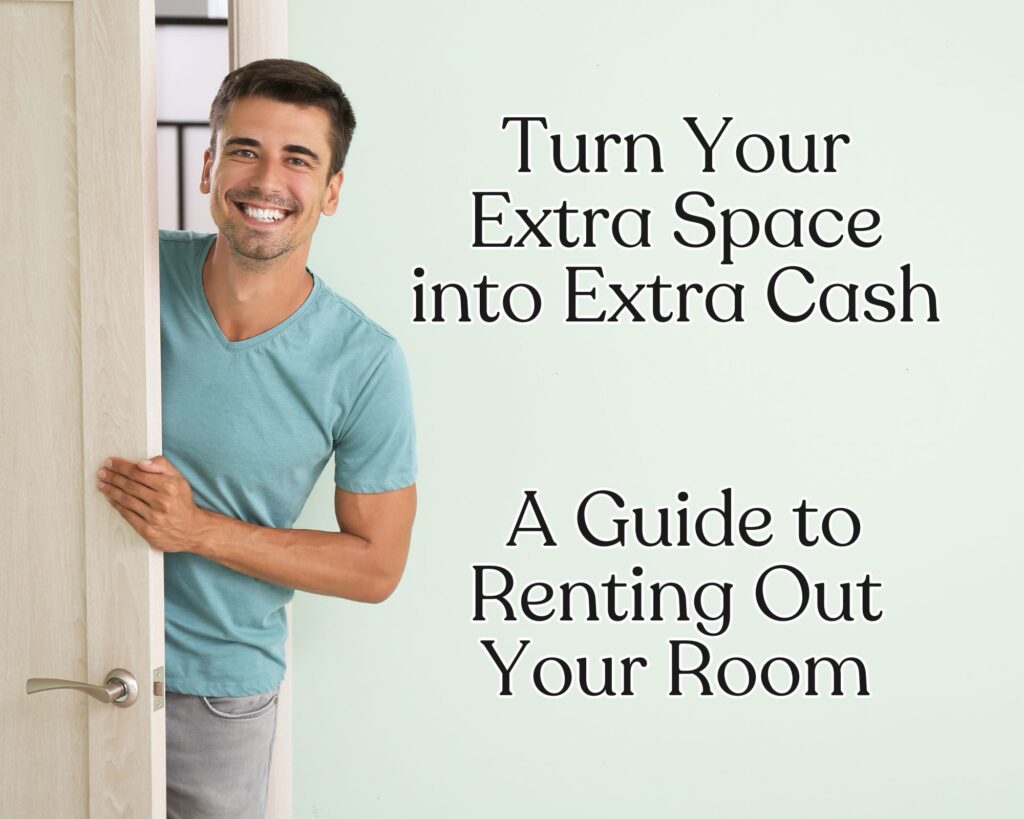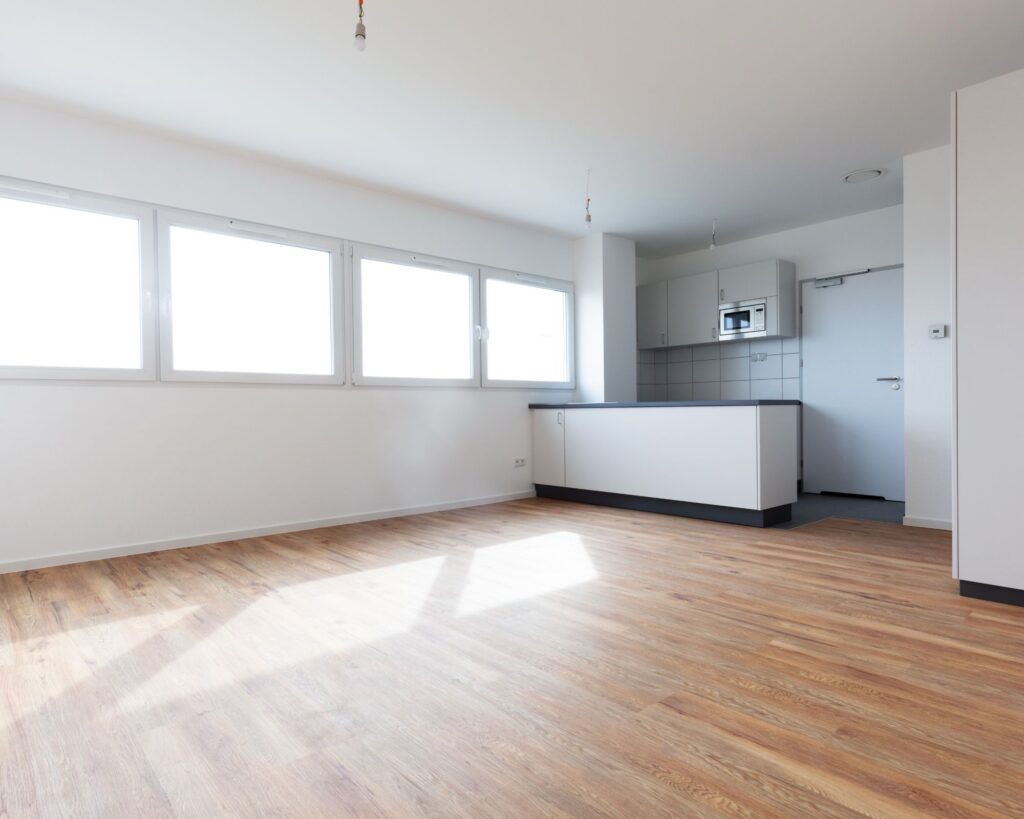In a world where every square foot of your home holds potential value, transforming an unused room into a steady income stream has never been more achievable. With the rise of platforms like Airbnb, homeowners are finding lucrative opportunities right within their own walls. Renting out a spare room not only offers a way to earn extra cash but also taps into the growing trend of the sharing economy, where convenience and connectivity reign supreme.
In this guide, we’ll explore how you can turn that extra space in your home into a profitable venture. From preparing your room for guests to navigating the ins and outs of rental platforms, we’ll cover everything you need to know to get started. Whether you’re looking to supplement your income, cover your mortgage, or simply meet new people from around the world, renting out a room can open doors to financial and personal rewards.

The concept of earning passive income from your home aligns with innovative income-generating strategies of the modern era. For more insights into passive income opportunities, a deeper dive can be found in Earning in Your Sleep: 30 Innovative Ideas for Passive Income, which explores a range of options for boosting your financial health.
Join us as we walk through the steps to successfully turn your extra space into extra cash, making the most of the resources at your fingertips.
What Are the Benefits of Renting Out a Room?
Renting out a spare room in your home goes beyond just earning additional income; it offers a range of benefits that can enhance your lifestyle and financial stability.
Financial Advantages
- Steady Income Source: Renting out a room can provide a consistent and reliable stream of income. This can be particularly helpful in covering mortgage payments, household bills, or funding home improvements.
- Tax Benefits: Depending on your location, you may be eligible for tax deductions related to rental activities, such as maintenance and utilities.
Flexibility and Control
- Setting Your Own Terms: Platforms like Airbnb allow you to control when you rent out your space and establish house rules that guests must follow. This flexibility means you can tailor the rental arrangement to suit your lifestyle.
- Customizable Pricing: You have the freedom to set and adjust rental prices based on demand, season, and other factors, maximizing your earning potential.
Social and Cultural Exchange
- Hosting guests from different parts of the world offers a unique opportunity for cultural exchange and can lead to lasting friendships.
Personal Development
- The experience of managing a rental space can enhance your skills in hospitality, customer service, and business management.
In addition to these benefits, renting out a room can be an introduction to the world of passive income, a concept that’s becoming increasingly popular in today’s economy. To explore more such opportunities, you might find valuable insights in Earning in Your Sleep: 30 Innovative Ideas for Passive Income.

How Can You Prepare Your Space for Renters?
Preparing your room for renters is crucial in creating a comfortable and appealing space that can attract guests and encourage positive reviews. Here’s how to make your room rental-ready:
Creating a Welcoming Environment
- Cleanliness is Key: Ensure the room is thoroughly cleaned, including linens, floors, and surfaces. A clean space not only makes a good first impression but also sets a standard for your rental.
- Comfortable Furnishings: Provide a comfortable bed, quality bedding, and essential furniture like a dresser or nightstand. Comfort is a top priority for guests.
Adding Thoughtful Touches
- Personalize with Decor: Adding simple decor can make the space feel inviting. Consider neutral, pleasing aesthetics that appeal to a wide range of tastes.
- Provide Basic Amenities: Essentials like towels, toiletries, and Wi-Fi access are expected by most guests. Additional amenities, such as a coffee maker or a small refrigerator, can greatly enhance the guest experience.
Ensuring Privacy and Security
- Privacy Matters: Make sure your guest’s space is private and secure. This may include locks on doors or separate entrances if available.
- Clear Boundaries: Define which areas of the house are accessible to guests and which are private. Clear communication of these boundaries is important.
Safety First
- Safety Measures: Equip the room with basic safety features like a smoke detector, carbon monoxide detector, and a first aid kit.
- Emergency Information: Provide information on emergency procedures and contact numbers.
By carefully preparing your space, you can create a comfortable and appealing environment that not only meets the expectations of your guests but also encourages them to return or recommend your space to others.

How Do You Navigate Rental Platforms Successfully?
Listing your room on rental platforms like Airbnb involves more than just posting a few pictures. It’s about creating an attractive and trustworthy listing that stands out. Here’s how to navigate these platforms effectively:
Creating an Effective Listing
- High-Quality Photos: Upload clear, high-resolution photos of your space. Make sure to capture well-lit and neatly arranged rooms to create an inviting visual appeal.
- Detailed and Honest Descriptions: Write a thorough and accurate description of your space. Include details about the amenities, the neighborhood, and any unique features of your room.
- Highlight Unique Selling Points: Does your room have a great view, a prime location, or unique decor? Make sure to highlight these features in your listing.
Understanding Platform Policies
- Read the Fine Print: Familiarize yourself with the platform’s policies, fees, and guidelines. Understanding these will help you manage your listing effectively and avoid any surprises.
- Set Clear House Rules: Establish and clearly communicate your house rules to potential guests. This can include policies on smoking, pets, or noise levels.
Managing Your Listing
- Responsive Communication: Be prompt and courteous in your communication with potential guests. Quick responses can often be the deciding factor in a guest choosing your room.
- Regular Updates: Keep your listing updated in terms of availability, pricing, and any changes to your space or policies.
- Seek and Use Feedback: Encourage guests to leave reviews and use their feedback to improve your listing and guest experience.
By mastering the art of listing on rental platforms, you can increase your visibility to potential renters and build a reputation as a reliable and welcoming host.
How Should You Price Your Room Rental?
Setting the right price for your room rental is a balancing act between being competitive and maximizing your earnings. Here are some tips to help you find the right price point:
Research the Market
- Understand Local Pricing: Look at similar listings in your area to get an idea of the going rates. Pay attention to factors like location, room size, and amenities offered.
- Consider Seasonal Variations: Prices can fluctuate based on the time of year. Higher demand during tourist seasons or local events can allow for higher pricing.
Factor in Your Expenses
- Calculate Your Costs: Include all costs associated with hosting, such as utilities, cleaning, supplies, and any platform fees. Your pricing should cover these expenses and also yield a profit.
- Offer Competitive Rates: While you want to make a profit, ensure your rates are competitive enough to attract guests.
Use Dynamic Pricing
- Be Flexible with Pricing: Platforms like Airbnb allow for dynamic pricing, which means you can adjust your rates based on demand, special events, or even last-minute bookings.
- Special Deals and Discounts: Consider offering discounts for longer stays or special promotions during off-peak seasons to maintain steady bookings.
Monitor and Adjust
- Regularly Review Your Pricing Strategy: The rental market can change, so it’s important to periodically review and adjust your pricing.
- Gather Guest Feedback: Understanding the perceived value of your space from guest reviews can provide insights into whether your pricing is appropriate.
Finding the right price requires a mix of market awareness, cost analysis, and flexibility. By regularly assessing and adjusting your pricing strategy, you can ensure that your room rental remains both competitive and profitable.

What Legal and Financial Considerations Should You Keep in Mind?
Navigating the legal and financial aspects of renting out a room is crucial for a smooth and successful hosting experience. Here are key considerations to keep in mind:
Understanding Local Laws and Regulations
- Check Local Zoning Laws: Some areas have specific regulations regarding short-term rentals. Ensure you comply with local zoning laws to avoid legal issues.
- Be Aware of Licensing Requirements: Depending on your location, you may need a license or permit to rent out your space.
- For a deeper understanding of these laws, visit LegalKnowItAll.com, where complex legal topics are explained in a clear and accessible manner.
Managing Taxes and Finances
- Income Reporting: Income from room rentals must be reported on your taxes. Keep detailed records of your earnings and expenses.
- Potential Tax Deductions: You may be eligible for tax deductions related to your rental activity, such as maintenance costs or utility expenses.
Insurance Coverage
- Review Your Insurance Policy: Ensure your homeowner’s insurance covers short-term rentals. You may need to adjust your policy or get additional coverage.
- Understand Platform Protection: Platforms like Airbnb offer some form of host protection or insurance, but it’s crucial to understand what is and isn’t covered.
Diversifying Your Income Streams
- Renting out a room is a great way to earn passive income, but there are many other avenues to explore. For more ideas on passive income, check out “Earning in Your Sleep: 30 Innovative Ideas for Passive Income”, and for legal insights, turn to LegalKnowItAll.com for easy-to-understand information.
By staying informed and proactive about these legal and financial aspects, you can ensure that your room rental venture is both legally compliant and financially rewarding.

How Can You Effectively Market Your Rental Space?
Marketing your rental space is key to attracting guests and maintaining steady bookings. Here are some strategies to effectively market your room:
Utilize Online Platforms
- Maximize Platform Features: Use all the features offered by rental platforms like Airbnb to highlight your space. This includes complete profiles, detailed descriptions, and regular updates.
- Quality Photography: Invest in professional or high-quality photographs that showcase your space in the best light.
Leverage Social Media
- Social Media Marketing: Use social media platforms like Instagram or Facebook to promote your rental. Share attractive photos, guest testimonials, and special offers.
- Engage with Potential Guests: Respond to comments and messages on social media. Engaging with your audience can increase your visibility and attract bookings.
Word of Mouth and Networking
- Encourage Referrals: Encourage past guests to refer friends and family. Personal recommendations are powerful marketing tools.
- Network Locally: Connect with local businesses or tourist centers to promote your space.
Offer Exceptional Service
- Create a Memorable Experience: Providing excellent service can lead to positive reviews, which are crucial for attracting future guests.
- Seek Reviews and Feedback: Encourage guests to leave reviews on your platform listing. Positive reviews can significantly boost your appeal to potential renters.

How Much Can You Make Renting Out a Room?
One of the most pressing questions for potential hosts is how much income they can realistically expect from renting out a room. The earning potential varies based on several factors:
Location and Demand
- Prime Locations Yield Higher Returns: Rooms in high-demand areas, such as city centers or near tourist attractions, typically command higher prices.
- Seasonality Affects Rates: In tourist-heavy regions, prices can peak during high season and dip in the off-season.
Room Quality and Amenities
- Better Amenities, Higher Earnings: Well-furnished and equipped rooms can justify higher rates. Amenities like private bathrooms, high-speed internet, or unique decor can add value.
- Size Matters: Larger or more luxurious spaces tend to earn more than smaller, basic rooms.
Occupancy Rates
- Consistency is Key: Your earnings depend on how consistently you can rent out the space. High occupancy rates lead to higher overall income.
- Short vs. Long-Term Rentals: Short-term rentals might offer higher per-night rates, but long-term rentals can provide steady income with less turnover.
Potential Earnings
- Varied Income Ranges: Depending on these factors, hosts can make anywhere from a few hundred to several thousand dollars a month.
- Real-Life Examples: For instance, a host in a metropolitan area with a well-furnished room could earn significantly more per month than a host in a less populated area with a basic setup.
Ultimately, the amount you can make from renting out a room depends on how well you balance these factors and market your space. Regular assessment and adjustments to your offering and pricing strategy can help maximize your earnings.



